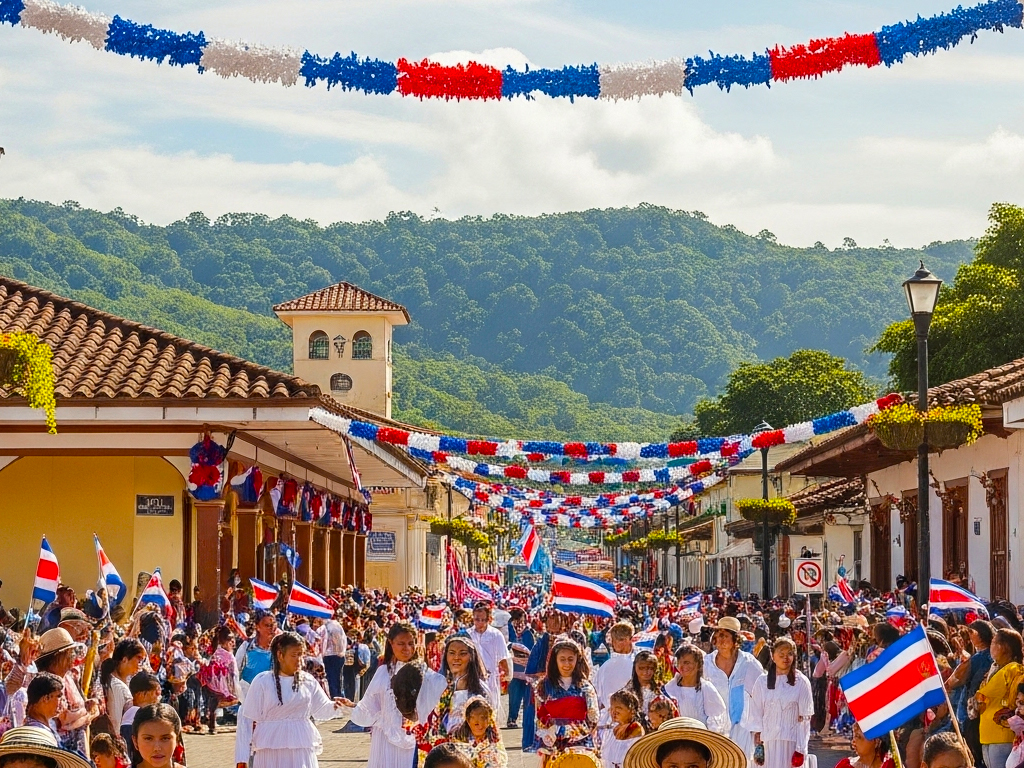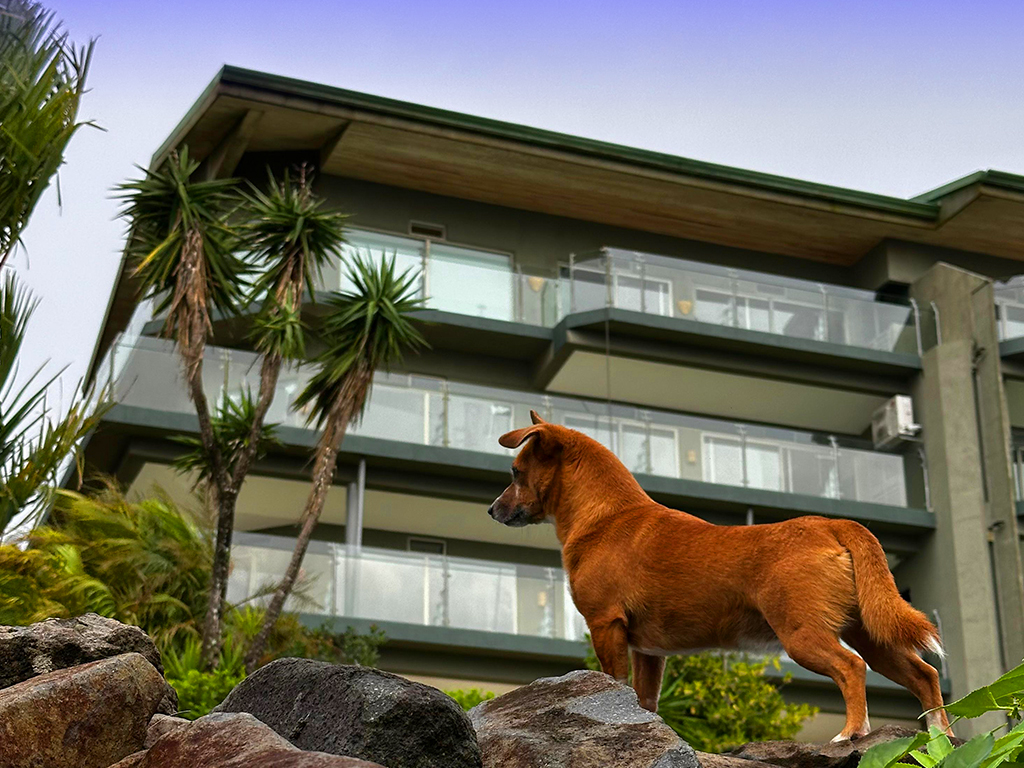Moving to Costa Rica is about much more than enjoying a beautiful home with lake or volcano views. For retirees and families considering the Lake Arenal region, it’s also an opportunity to immerse yourself in one of the warmest, most community-centered cultures in the world. Costa Rican traditions are deeply tied to family, food, and faith, and expats will quickly find that locals are eager to share them. Whether you’re attending a town festival, sipping coffee with neighbors, or watching fireworks light up the night sky, these experiences are what transform Lake Arenal from a destination into a home.
In this article, we’ll explore the Costa Rican traditions that expats in the Lake Arenal area can enjoy, along with tips on how to take part respectfully and authentically.
Pura Vida – More Than Just a Phrase
If you’ve researched Costa Rica, you’ve likely come across the phrase *pura vida*. While it literally means “pure life,” it’s more of a philosophy than a slogan. Costa Ricans, or *Ticos*, use it to greet one another, to say thank you, or simply to express that life is good.
For expats near Lake Arenal, embracing *pura vida* is the first step toward blending in with the community. It’s about slowing down, appreciating nature, and prioritizing people over schedules. Retirees in particular find this outlook refreshing, as it mirrors the region’s relaxed pace of life. Families will also notice how children are raised in an environment that values kindness, patience, and gratitude.
Coffee Culture and Afternoon Cafecito
Coffee isn’t just a drink in Costa Rica—it’s part of the national identity. The country has grown coffee since the 18th century, and today it remains a staple of both the economy and daily life.
In towns around Lake Arenal—like Tilarán, Nuevo Arenal, and La Fortuna—it’s common for neighbors and friends to gather in the late afternoon for *cafecito* (coffee time). This usually includes a fresh brew served alongside pastries such as *empanadas de frijol* (bean turnovers) or *pan casero* (homemade bread).
Expats are always welcome at these gatherings, and participating is an easy way to meet locals and learn conversational Spanish. Retirees will love the sense of routine and connection, while families can introduce children to a tradition that brings people together across generations.
Festivities and Fiestas Patronales
Costa Ricans love to celebrate, and nearly every town has its own *fiestas patronales*—festivals honoring a local saint. These events often include parades, fireworks, bull riding (a spectator sport where riders test their skill, but the bull is never harmed), live music, and plenty of food.
In the Lake Arenal region, nearby communities host annual celebrations that bring entire towns together. For example, Tilarán is known for its lively festivals featuring horse parades (*tope*), traditional dances, and concerts.
Expats attending these fiestas will find them to be joyful, family-friendly events where it’s easy to mingle with neighbors and experience authentic Costa Rican culture. Retirees often appreciate the vibrant music and dancing, while families will enjoy the carnival-like atmosphere that delights children.
Semana Santa – Holy Week Traditions
One of Costa Rica’s most significant holidays is *Semana Santa* (Holy Week), which takes place in the week leading up to Easter. It’s marked by religious processions, church services, and time spent with family.
In the Lake Arenal area, you’ll see towns decorate streets with flowers, palm fronds, and altars. Many businesses close or operate on limited hours, as families gather to cook traditional meals and reflect on the season.
For expats, Semana Santa offers a chance to witness the country’s deep Catholic roots and the importance of spirituality in daily life. Even if you’re not religious, you can still appreciate the artistry of the processions and the communal atmosphere.
Christmas and New Year Celebrations
The holiday season in Costa Rica is both festive and family-oriented. Christmas is celebrated with midnight mass (*Misa de Gallo*), fireworks, and feasts that often feature *tamales*. Making tamales is a tradition in itself—families spend days preparing them together, wrapping corn dough filled with pork, chicken, or vegetables in banana leaves before steaming them.
In Lake Arenal communities, you’ll often see houses decorated with nativity scenes (*portales*) and strings of lights. New Year’s Eve is equally festive, with families gathering for late-night dinners and communities setting off fireworks.
Expats who join in will find themselves warmly welcomed. Retirees can enjoy quiet evenings of candlelight and music, while families with children will love the excitement of fireworks over the lake.
Rodeos and Horse Parades
Horses are an important part of Costa Rican heritage, especially in rural areas like Lake Arenal. Local festivals often feature *topes* (horse parades), where riders show off their finest horses and traditional attire. Rodeos are also popular, though they differ from North American rodeos—bull riding here is less about competition and more about bravery and community entertainment.
Expats who love animals or outdoor events will find these gatherings exciting and uniquely Costa Rican. Many retirees enjoy photographing the colorful parades, while families can watch together from the sidelines and share in the laughter and cheers.
Día de la Independencia – September 15
Costa Rica celebrates Independence Day on September 15, commemorating freedom from Spain in 1821. The celebration begins the night before with children parading through the streets carrying homemade lanterns (*faroles*), symbolizing the torch that brought news of independence.
In towns around Lake Arenal, you’ll also see marching bands, traditional dances, and parades featuring schoolchildren in costumes. It’s a beautiful, patriotic event that highlights Costa Rica’s pride in its peaceful democracy.
For expats, participating in Independence Day festivities offers an opportunity to support local schools and feel part of the broader national identity. Families, in particular, will find the lantern parade charming and educational for children.
Traditional Foods to Try and Share
No exploration of Costa Rican traditions would be complete without food. Expats in Lake Arenal will quickly become familiar with *gallo pinto* (a breakfast dish of rice and beans), *casados* (a hearty plate with rice, beans, salad, plantains, and a choice of meat), and fresh tropical fruits.
Special occasions bring even more traditional dishes, such as tamales at Christmas, *rosquillas* (cheese-filled corn cookies), and *chicharrones* (crispy pork). Local farmers’ markets are the best places to discover these foods and connect with the people who grow and prepare them.
Sharing meals with Costa Rican neighbors is one of the most rewarding ways expats can experience culture. It’s not just about the flavors but also about the hospitality and warmth that define life in Costa Rica.
Tips for Expats Embracing Costa Rican Traditions
Be open and curious. Locals appreciate when foreigners take interest in their customs.
Learn some Spanish. Even basic phrases will go a long way in helping you connect.
Show respect. Participate with humility and avoid comparing traditions to your home country.
Bring your family. Costa Rican traditions are inclusive, and children are always welcome.
Final Thoughts
For retirees and families moving to the Lake Arenal region, Costa Rican traditions are not just cultural curiosities—they’re invitations to belong. Whether you’re sipping afternoon coffee, joining in a local fiesta, or walking alongside children in the Independence Day lantern parade, each tradition offers a chance to feel rooted in your new community.
Life in Costa Rica is about much more than breathtaking views and mild weather. It’s about *pura vida*, shared with neighbors, friends, and family. By embracing these traditions, expats in Lake Arenal can enjoy not only a beautiful home but also a meaningful and connected way of life.









